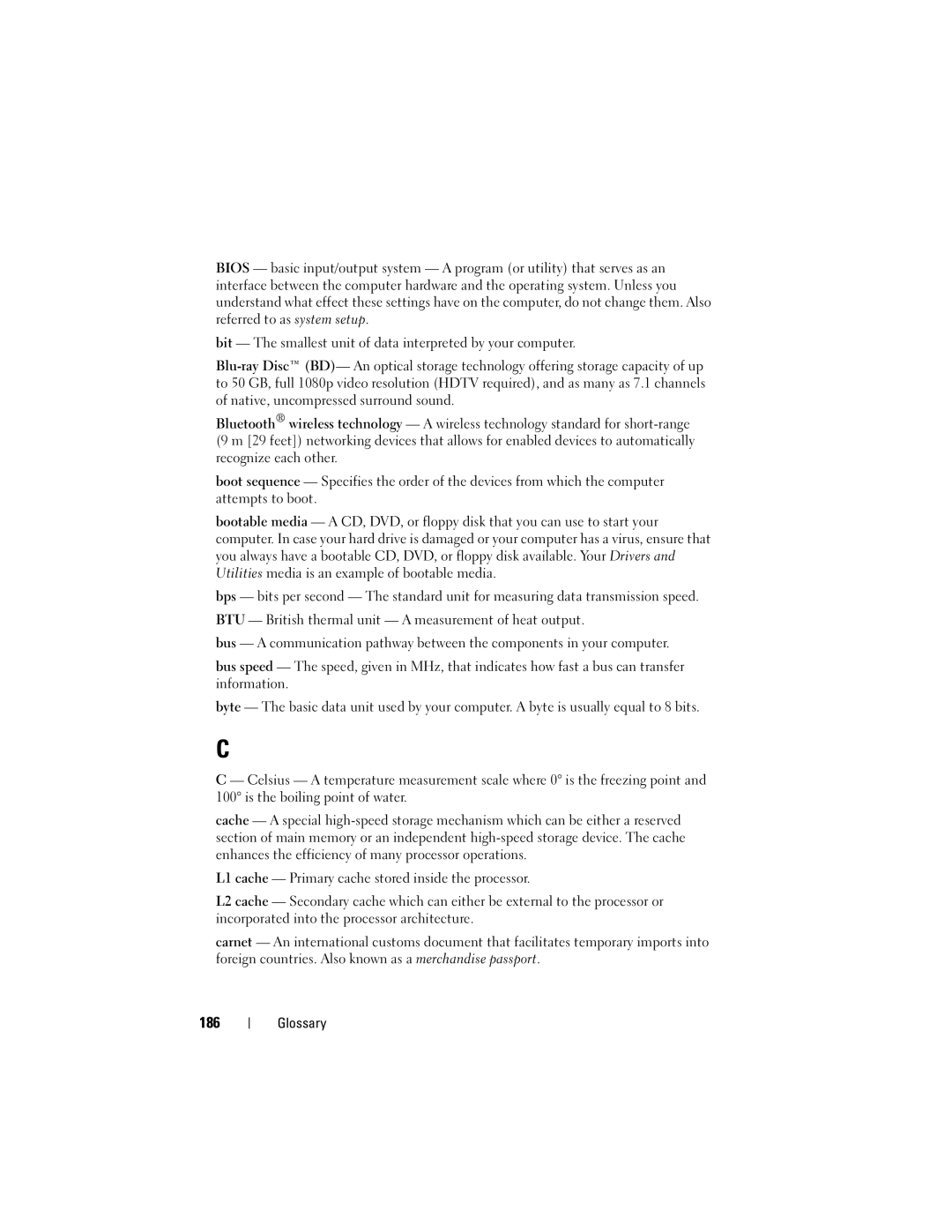BIOS — basic input/output system — A program (or utility) that serves as an interface between the computer hardware and the operating system. Unless you understand what effect these settings have on the computer, do not change them. Also referred to as system setup.
bit — The smallest unit of data interpreted by your computer.
Bluetooth® wireless technology — A wireless technology standard for
boot sequence — Specifies the order of the devices from which the computer attempts to boot.
bootable media — A CD, DVD, or floppy disk that you can use to start your computer. In case your hard drive is damaged or your computer has a virus, ensure that you always have a bootable CD, DVD, or floppy disk available. Your Drivers and Utilities media is an example of bootable media.
bps — bits per second — The standard unit for measuring data transmission speed.
BTU — British thermal unit — A measurement of heat output.
bus — A communication pathway between the components in your computer.
bus speed — The speed, given in MHz, that indicates how fast a bus can transfer information.
byte — The basic data unit used by your computer. A byte is usually equal to 8 bits.
C
C — Celsius — A temperature measurement scale where 0° is the freezing point and 100° is the boiling point of water.
cache — A special
L1 cache — Primary cache stored inside the processor.
L2 cache — Secondary cache which can either be external to the processor or incorporated into the processor architecture.
carnet — An international customs document that facilitates temporary imports into foreign countries. Also known as a merchandise passport.
186
Glossary
